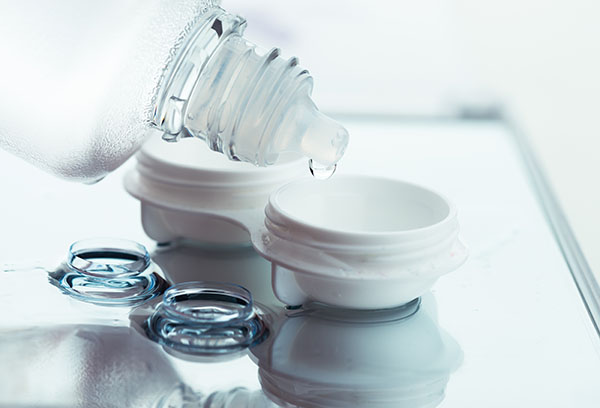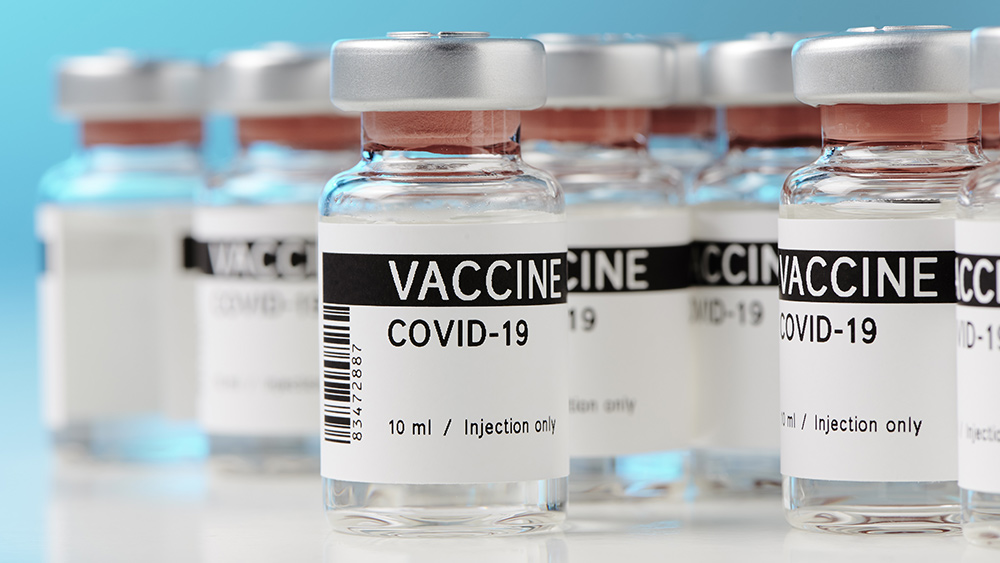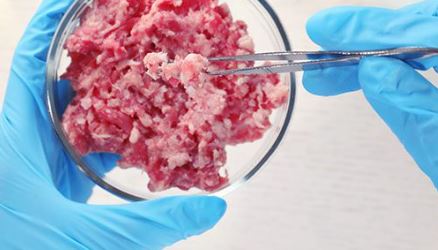18 Popular US-made soft contact lenses found to contain high levels of harmful PFAS
05/25/2023 / By Olivia Cook

At least 18 popular kinds of soft contact lens brands manufactured in the United States are largely made up of harmful compounds called per- and poly-fluoroalkyl substances (PFAS), also known as “forever chemicals.”
Forever chemicals do not naturally break down either in the environment or even within the human body. Unfortunately, more and more of them are being found in various consumer products.
The research, led by product investigation organization Mamavation, in partnership with Environmental Health News and several American universities, found that 18 popular soft contact lens brands contained extremely high levels of organic fluorine, a marker for PFAS. (Related: Industry influence crippling lawmakers’ attempts to pass laws protecting consumers from FOREVER CHEMICALS.)
The testing, conducted at an Environmental Protection Agency-certified lab, found organic fluorine levels to be between 105 parts per million (ppm) to 20,700 ppm.
The chemistry is complex and the researchers note that there may be some other ingredients, but the readings strongly suggest the presence of PFAS in the form of fluoropolymers. A fluoropolymer is essentially a soft plastic material commonly used in disposable, soft lenses because it has the properties that your eyes want, according to Scott Belcher of the North Carolina State University, a scientific adviser on contact lens testing and a professor of toxicology and environmental health sciences.
“[The eye] wants to get oxygen and doesn’t want bacteria to grow like crazy, and it wants lenses to be smooth and comfortable,” Belcher added. “You could consider [the lenses] almost pure PFAS.”
The three contact lens brands with the highest amounts of organic fluorine were Alcon Air Optix (No Hydraglide) for Astigmatism (20,000 ppm), Alcon Air Optix Colors with Smartshield Technology (20,700 ppm) and Alcon Total30 Contact Lenses for Daily Wear (20,400 ppm.).
Brands with the lowest PFAS levels include Acuvue Oasys with Hydraclear Plus with UV Blocking (113 ppm) and Alcon Dailies Total One-Day Water Gradient for Astigmatism (106 ppm).
Contact lens companies deny results of study
A spokesperson for Alcon, responsible for some of the worst-offending brands, claimed in a statement that its contact lenses have been shown to be safe and are used daily by millions of people in more than 140 countries.
“All of Alcon’s contact lenses meet our stringent internal safety standards and comply with the regulatory requirements of the U.S. Food and Drug Administration, the European Chemicals Agency or similar regulatory bodies in all of the markets in which we sell our products,” said the spokesperson.
Alcon, based in Geneva, Switzerland, manufactures most of its contact lenses in the United States. Alcon officially disputes the study findings and is demanding a copy of the report for further review.
Acuvue and Coopervision have yet to respond to media outlets who asked for statements.
Perhaps just as bad as the contact lens companies refusing to take accountability is the fact that, according to Belcher, it is still “absolutely unclear.”
“This is the first study to really point in this direction,” said Belcher, despite scientists knowing “for decades” that there were fluoropolymers in contact lenses. He added that contact lenses are “not really regulated as far as toxicology assessments.”
Belcher, who occasionally wears contacts, added that “there really is a concern” with the findings. “We just can’t quantify that concern at this point,” he said.
It is also important to note that the study only tested brands from Acuvue, ALcon and Coopervision. It is unknown whether other brands also contain PFAS, but Belcher said it’s “certainly possible,” if not likely.
For more stories about harmful ingredients in everyday products, visit Chemicals.news.
Watch the following video about forever chemicals detected in water systems of nearly 2,800 U.S. cities.
This video is from the channel The Sword & Shield on Brighteon.com.
More related stories:
Ketchup, mayo and other common staple foods tainted with toxic PFAS chemicals.
Concerning levels of FOREVER CHEMICALS detected in several species of fish in UK.
Tampons, including “organic” brands, found to contain toxic PFAS (fluorine) chemicals.
Consumer beware: Study reveals toxic “forever chemicals” in pesticides are entering the food supply.
Sources include:
Submit a correction >>
Tagged Under:
Alcon, Contact lens, contact lenses, discoveries, eye health, forever chemicals, per- and poly-fluoroalkyl substances, PFAS, poison, products, research, toxic chemicals, toxic ingredients, toxins
This article may contain statements that reflect the opinion of the author



















